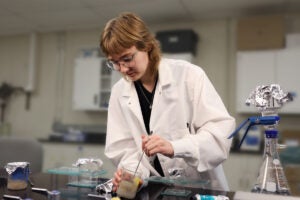In 2007, Yilver Aguilera was on the verge of quitting school and giving up on his dream to pursue a career in finance. Grieving over the death of his father who was shot by a gang member that year, Aguilera was overwhelmed by hopelessness.
Just when he thought he had no other option but to return to his hometown in an area overrun by gangs in Honduras, he received an offer from the Panama Brigades, a student-run program that provides consulting services for small business owners in impoverished communities in Panama.
“When Panama Brigades offered me an internship, I realized that giving up was not an option,” said Aguilera, a Spanish/finance major. “Too many people have invested in me, and it’s my responsibility to help others emancipate themselves from situations like mine.”
During his summer internship, Aguilera helped a shoemaker and a tourist shop owner market their businesses by creating logos, signage, business cards and long-term financial plans.
He had initially planned to pursue a master’s in public policy and a career at the World Bank or the United Nations and had worked as a legislative intern for a Texas state representative. But after seeing how much he could help the shopkeepers through Panama Brigades, he decided to continue consulting so he could work directly with people in need.
Internships allow students to gain real-world insight into their chosen profession, which can help them discover new opportunities and avoid falling into the wrong career, said Kate Brooks, director of Liberal Arts Career Services.
“Sometimes the image of a career can be quite different from the reality,” Brooks said. “Movies and TV shows need to be dramatic, so they tend to show action-oriented aspects of a career field, not day-to-day reality. You’ll never watch a lawyer writing a brief, or a doctor filling out insurance claims. Students who complete internships get to see the profession first-hand and make their own judgments about whether they find it interesting and compelling.”
Redirecting his career path away from policymaking, Aguilera created the Student Consulting International Organization (SCIO), a nonprofit organization, much like Panama Brigades, that focuses on creating business solutions for impoverished communities. Aguilera has since established a SCIO chapter at Carnegie Mellon University and is expanding it to the Massachusetts Institute of Technology and New York University.
This summer Aguilar plans on developing a micro-insurance pilot program, a low-cost insurance provider for small business owners in developing countries. Without Panama Brigades, Aguilar said he never would have known micro-insurance existed.
“The axiom that ‘you don’t know what you don’t know’ applies to internships,” Brooks said. “The internship can be the starting point of a new career field — someone who initially takes an internship in one field may learn about a related field that they never knew existed.”



